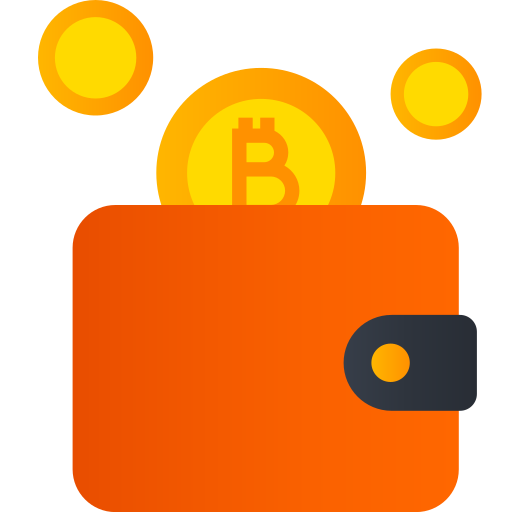
As cryptocurrencies like Bitcoin gain broader traction across digital and physical domains, everyday crypto holders search for easy avenues to conduct routine transactions with their assets. Thankfully, Bitcoin wallets play a pivotal role in streamlining spendability and commercial integration to unlock convenient payment utility for goods and services using Bitcoin. We’ll explore key innovations around simplified payment features that make Bitcoin wallets essential tools for crypto’s role in the consumer economy.
Key Wallet Functions Supporting Bitcoin Payments
At their core, crypto wallets allow users to not only store Bitcoin securely but also send and receive it similar to interfaces for online banking or money transfer apps. Wallets provide critical utility:
– Private key management – Control for sending BTC
– Transaction Functionality – Build, broadcast, and confirm payouts
– Address generation – Receive incoming payments
With these capacities, A Bitcoin wallet provides the basic platform to use Bitcoin balances like monetary funds rather than just idle digital collateral as they crucially interconnect with the blockchain allowing transfers to counterparties.
Attributes for Usable Point-of-Sale Commerce

While base-level wallet capabilities enable transactions between known counterparties, additional solutions cater towards retail Point-of-Sale (PoS) scenarios involving one-time exchanges with strangers. This demands features tailored for physical shops, online e-commerce, and service providers accepting cryptos.
Quick Payment Codes
For in-person exchanges, convenient QR codes tied to auto-generated Bitcoin addresses streamline checkout by allowing instant scanning to pull up exact payment details. This bypasses slow manual Bitcoin address entry on mobile screens.
Dynamic Value Conversion
Since Bitcoin’s value fluctuates constantly relative to the currency pricing of goods, some wallet apps automatically convert order totals to the BTC equivalent in real time based on external market data feeds. This saves sellers from undercharging due to lagging rates.
Smoother Identity Verification
Paying unfamiliar parties raises identity concerns. Tools like ID verification match customer identities to wallet profiles during transactions for seller protection against fraud and compliance violations.
How Wallets Aid Mainstream Adoption Barriers
On top of features to facilitate payments at checkout, Bitcoin wallets also alleviate broad adoption hurdles surrounding security anxieties and perceived complexity for those less familiar with cryptocurrency management.
Easier Self-Custody Security
Wallets give users the autonomy to control holdings themselves via private keys while pioneering devices like hardware wallets and multi-signature arrangements drastically reduce vulnerability risks from storage oversights or theft. This makes self-reliance more viable for novices.
Improved Platform Interoperability

Support for wrapped Bitcoin allows users to bridge their core wallet holdings into secondary DeFi ecosystems. Cross-chain swaps similarly establish gateway connectivity to assets across isolated networks like exchanging Bitcoin for Ethereum tokens directly without centralized exchanges.
Educational Resources
Many wallets understand the learning curve deterring adoption for newcomers unfamiliar with cryptographic principles or nervous over perceived technical complexity. By incorporating visual tutorials about sending/receiving, transaction tracking, and self-custody fundamentals directly in-app interfaces, they ease onboarding.
User Experience Refinements
Thanks to fierce competition in the saturated wallet market, providers relentlessly refine UI/UX searching for the optimal balance between function and simplicity to accommodate mainstream users. Intuitive flows for signing up, accessing holdings, and transacting aim to prevent confusion or anxiety during bitcoin payments.
Compliance Infrastructure for Merchants
Complex accounting treatment, tax calculations, and compliance doubts over regulatory treatment are all compound barriers preventing small businesses from accepting Bitcoin payments. New services integrate directly with wallet apps to automate tax considerations and bookkeeping for merchant transactions involving Bitcoin. This reduces friction for sellers exploring crypto commerce.
Maturing Bitcoin Payment Ecosystem
Together, Bitcoin wallets and adjacent infrastructure innovating around know-your-customer processes, security simplification, and seamless point-of-sale plugins collectively propel cryptocurrency payments for goods and services forward toward mainstream viability. While skeptics persist over crypto’s role in regular consumer activity, the wallet space continues responding to user needs in ways that promise to streamline adoption outside speculative investing use cases.
Conclusion
Far from their early representations as complex software tools exclusively accessible to highly technical experts, modern cryptocurrency wallets now lead the charge on tailoring Bitcoin’s commercial utility for daily transactions. Thanks to an emphasis on UI refinement, security innovations that balance convenience without compromising decentralization principles, and complementary services easing compliance overhead – bitcoin wallets establish the critical bridge helping cryptocurrency participation permeate across the broader consumer economy.